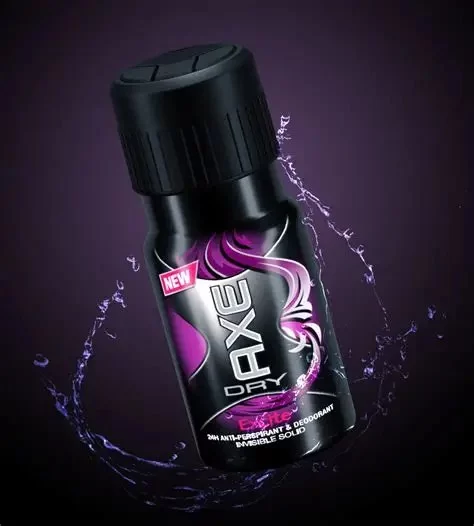- The-Campaign-Overview - A Brief Look at Unilever's Body Spray Ad
- Marketing-Mistakes - What Went Wrong?
- Target-Audience-Issues - Who Was the Campaign Aimed At?
- Cultural-Relevance - Why It Missed the Mark
- Lessons-Learned - What Marketers Can Take Away from the Failure
1. The Campaign Overview: A Brief Look at Unilever's Body Spray Ad
Unilever, a global leader in consumer goods, launched an ambitious body spray campaign aimed at modern consumers seeking a balance of freshness and boldness. The ad, featuring flashy visuals, high-energy scenes, and a confident narrator, positioned the body spray as an essential product for the modern man. But despite significant investment and media buzz, the campaign quickly became the subject of controversy and was deemed unsuccessful. So, what exactly went wrong?
2. Marketing Mistakes: What Went Wrong?
One of the first signs of trouble in Unilever’s body spray campaign was the overemphasis on style over substance. While the visuals were sleek and attention-grabbing, the messaging failed to resonate deeply with its target audience. Rather than offering a meaningful connection to consumers, the ad focused on superficial qualities—flashy, extravagant, and borderline exaggerated representations of masculinity. While some may argue it appealed to youthful energies, others criticized it for lacking authenticity and depth.
Furthermore, the campaign's broad, generalized approach made it difficult to create an emotional connection with a wide demographic. The visuals, while striking, felt more like an ad for an action movie than a body spray—a disconnect that alienated many potential customers.
3. Target Audience Issues: Who Was the Campaign Aimed At?
Understanding the target audience is critical for any marketing campaign, and this is where Unilever's body spray ad struggled. The ad attempted to capture the attention of young men, particularly those looking for confidence and style. However, the exaggerated, almost caricatured portrayal of masculinity missed the mark for a generation seeking more relatability and authenticity.
Instead of appealing to real-life scenarios and everyday needs, the campaign created an image of a lifestyle that many consumers found unrealistic or even alienating. In a time when authenticity and inclusivity are highly valued, this misstep made it difficult for the brand to form a true connection with its audience.
4. Cultural Relevance: Why It Missed the Mark
Another crucial element contributing to the campaign's failure was its lack of cultural relevance. As global brands increasingly navigate diverse markets, their marketing campaigns must be sensitive to varying cultural norms and values. Unilever's body spray ad, however, seemed to disregard this nuance, focusing instead on outdated stereotypes of masculinity.
The portrayal of "idealized" masculinity in the campaign was not only tone-deaf but also out of step with modern cultural movements. Consumers, particularly younger audiences, are now more aware of the importance of diversity and inclusion. As a result, the campaign’s reliance on traditional and narrow portrayals of masculinity led to backlash, and many questioned the brand’s relevance in the changing cultural landscape.
5. Lessons Learned: What Marketers Can Take Away from the Failure
The downfall of Unilever's body spray campaign is a case study in how important it is for brands to connect with their audience on a deeper, more meaningful level. Marketers today need to understand that flashy visuals and over-the-top portrayals of “cool” won’t always resonate. Instead, campaigns must strike a balance between style and substance—appealing to consumers' real needs and emotions, not just their desires for status or superficiality.
Brands must also stay mindful of cultural shifts and the evolving social landscape. What worked a decade ago may not work today, and staying connected to the values of your audience—such as inclusivity, diversity, and authenticity—can make or break a campaign. Lastly, a genuine, relatable approach is often the key to building lasting customer loyalty, as opposed to relying on sensationalism.
Want to explore fragrances and other products that truly speak to you? Visit Scent Snob for personalized recommendations on perfumes, body sprays, and more that align with your unique preferences.


0 comments